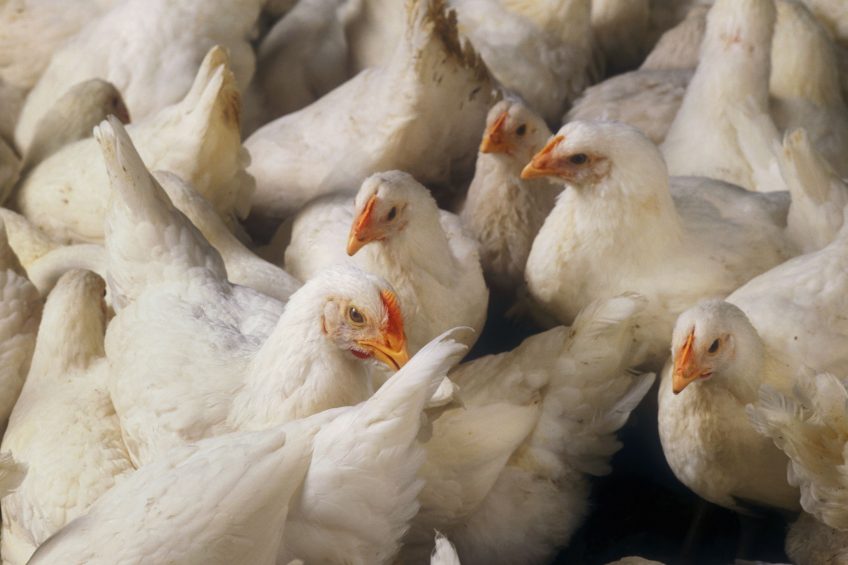Investigative report: Poultry dead on arrival

Poultry industry leaders have stressed they are working with the Government to improve bird welfare in transit following the publication of a report claiming over a million chickens die a year while being transported to abattoirs.
The report by the Bureau of Investigative Journalism revealed Food Standards Agency figures showing that 1.35m chickens died during transport to abattoirs or while waiting for slaughter over a 15-month period between 2016 and 2017.
Birds with abnormalities or illness on arrival
It also reported that a large number of birds were also found with abnormalities or illness at processing plants, including 680,000 with bruising or fractures and 376,000 in emaciated condition. A further 278,000 were suffering respiratory disease. Around 950 million birds are reared for poultry meat annually, contributing £3.6bn to the economy.
Issues identified included damage to transportation crates
The report also highlighted that the FSA had recorded nearly 1,000 separate incidents linked to poultry transport during a 5 month welfare study last year. Nearly 50% of the welfare issues identified were due to damage to transportation crates, while dermatitis and overstocking were also issues.
British Poultry Council: “striving to reduce figures”
The British Poultry Council stressed it was striving to reduce the figures and said the “dead on arrival” percentage represented a fraction of the total number of birds – “4 to 7 birds out of a lorry load of 6,000”.
Shraddha Kaul, BPC public affairs and public relations manager, said the BPC had been pushing for a revised statutory code for the welfare of chickens, were looking at ways to improve the health and welfare of birds across all production systems and were developed guidance designed to improve welfare reporting at abattoirs.
“It is important for our consumers to know that poultry meat businesses are working hard towards improving bird welfare during transit. We want to ensure that our birds are transported in comfort and we are doing everything we can to reduce the number of birds that die.
“We have looked at ways to improve airflow to dissipate heat and prevent suffocation. Some of our plants have built air-conditioned sheds where trucks can be parked, which helps prevent the build-up of heat. We are constantly looking for innovative solutions including ways to redesign plants, so that we can unload large numbers of birds in the shortest possible time.”

High welfare across the livestock supply chain incl transport
But MPs and animal welfare campaigners called for immediate improvements. Neil Parish, chair of the Environment, Food and Rural Affairs committee, said he wanted to see action from both the Food Standards Agency and for the industry to improve standards.
“It is essential that we maintain the highest animal welfare standards at each stage of the poultry and livestock supply chain – including transportation. Poor welfare standards lead to poor consumer confidence in British produce, in both internal and overseas markets.”
“Cheap food comes at a cost…”
Kath Dalmeny, chief executive of the Sustain food and farming alliance, said the figures were completely unacceptable.
“This is the extremely nasty underbelly of expecting to eat really cheap chicken. Cheap food comes at a cost – in this case, very poor animal welfare during transport. This is completely unacceptable.
“We’re told that after Brexit new markets for high quality, high welfare British products will emerge. But we are seriously at risk of losing those markets if consumers lose faith in the quality and welfare of our meat. British standards must improve and we must compete on high quality, otherwise there will be a very unpleasant race to the bottom.”













